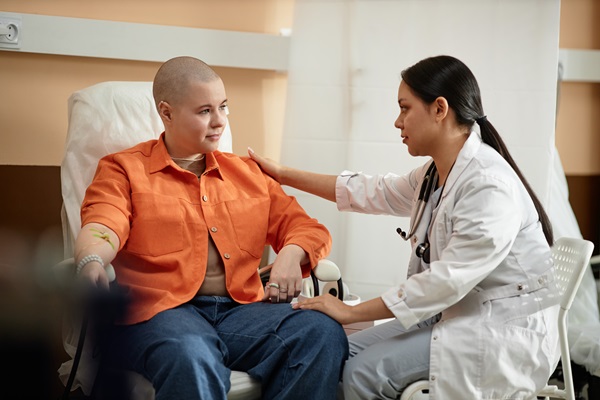Leukemia Treatment: Tailoring Therapy for Individual Patients

Personalized leukemia treatment recognizes that each person's cancer journey is unique. It is no longer a one-size-fits-all approach to care. Instead, a deeper understanding of the disease, further medical research, and innovative treatment allow oncologists to use a more personalized method to tailor care according to each patient's medical needs and treatment goals. Leukemia treatment is not only about eradicating cancer cells but offering the best possible outcomes to protect your overall health and quality of life.
Understanding leukemia
Leukemia is a type of cancer that affects blood-forming tissues, including the bone marrow and the lymphatic system. Unlike other cancers, it typically does not form a mass (tumor) that appears on imaging tests. It leads to the production of abnormal blood cells and platelets, which can interfere with the body's ability to fight infection, control bleeding, and transport oxygen to other parts of the body.
According to the Cleveland Clinic, leukemia is the tenth most common cancer in the United States. It accounts for about 3.2% of new cancer rates. There are several types of leukemia, including:
- Acute lymphoblastic leukemia (ALL). This is the most common type of leukemia in children, teens, and adults up to the age of 39. However, it can affect people of all ages.
- Acute myeloid leukemia (AML). AML is the most common type of acute leukemia in adults, particularly people over the age of 65.
- Chronic lymphocytic leukemia (CLL). This is the most common type of chronic leukemia in adults over 65. It does not often present symptoms right away.
- Chronic myeloid leukemia (CML). Similar to CML, this is a common form of leukemia in older adults with late-onset symptoms. It rarely affects children.
While many people believe that leukemia is a pediatric cancer, some types of it occur more frequently in adults. This is especially true for older adults, male patients, and those who are Caucasian/white.
The development of leukemia treatment
In years past, leukemia treatment primarily involved chemotherapy, radiation therapy, and stem cell therapy. While these methods are effective, they can cause significant side effects. In recent years, there has been an effort in molecular biology and genetics to develop more precise and less invasive leukemia treatment methods.
Chemotherapy
In many cases, chemotherapy remains the foundation of leukemia treatment, especially for aggressive forms of cancer like AML and ALL. However, the approach to chemotherapy has become more refined. An oncologist can help tailor modern treatment plans to the specific type and stage of leukemia. Scientists and medical researchers are continuously working to develop drugs that target cancer cells more precisely while sparing healthy tissues and protecting the patient's overall health and well-being.
Targeted therapy
Another advancement in leukemia treatment is the development of targeted therapies. These methods can attack specific genetic mutations or proteins that leukemia cells need to grow and survive. The use of tyrosine kinase inhibitors (TKIs) such as imatinib (Gleevec) can help improve the treatment of CML while specifically targeting the BCR-ABL protein. This protein is a result of a genetic mutation in CML cells.
Immunotherapy
Immunotherapy is another innovative approach to modern leukemia treatment. It leverages the body's immune system to recognize and destroy cancer cells. CAR-T cell therapy. This therapy modifies a patient's T-cells to target leukemia cells, particularly in patients with ALL who have not responded to other treatments. Leukemia cells also contain antigens that can be targeted with monoclonal antibodies, which can also be an effective targeted leukemia treatment.
Personalized treatment plans
Each patient's leukemia is unique, so their treatment should be as well. Their genetic makeup influences leukemia, the specific characteristics of their leukemia cells, and their overall health. By analyzing these factors, the oncologist can develop a treatment plan tailored specifically to the patient's needs. These treatment plans may include genetic profiling and minimal residual (MRD) monitoring to determine the effectiveness of treatment based on the patient's medical and family history.
Personalized leukemia treatment also considers the patient's preferences, goals, and overall quality of life. Not only are treatments chosen based on their effectiveness but also their side effects and how they might affect a patient's daily life and overall health. Using this comprehensive approach ensures that the patient's well-being is at the center of their treatment plan.
Schedule a consultation today
By tailoring therapy to the individual characteristics of each patient's leukemia, oncologists can improve their outcomes and overall quality of life. Are you ready to learn more about personalized leukemia treatment options in the Marlton area? Call our office to schedule a consultation.
Request an appointment here: https://lindenbergcancer.com or call Lindenberg Cancer & Hematology Center at (856) 475-0876 for an appointment in our Marlton office.
Check out what others are saying about our services on Yelp: Leukemia Treatment in Marlton, NJ.
Recent Posts
A chemotherapy treatment center supports patients through every phase of cancer care, from preparation and infusion to recovery and follow-up. During the first visit, the care team reviews diagnosis details, treatment goals, and proposed drug regimens, then confirms allergies, prior therapies, and current medications. This appointment involves nurses who measure vital signs, draw labs, and…
A surgical oncologist helps diagnose and treat cancer using advanced procedures and often works closely with medical and radiation teams to coordinate care. Many patients hear the term after an abnormal scan, biopsy, or referral, and want a clear explanation of what this specialist does. Understanding how this specialty fits into cancer care can make…
Getting diagnosed with ovarian cancer is overwhelming to say the least, and many patients leave the doctor’s office thinking of questions they wish they had asked. Fortunately, you can bring these questions to your next appointment with the oncologist. Patients are encouraged to ask any questions they have to better understand their diagnosis, explore treatment…
Leukemia treatment aggressively targets cancer cells, but healthy cells can also be affected, leading to side effects. An oncology team can prevent problems early and ease symptoms fast. Clear expectations and communication help patients stay safer and more comfortable during care. Many side effects remain manageable when patients report their symptoms early, and supportive care…


